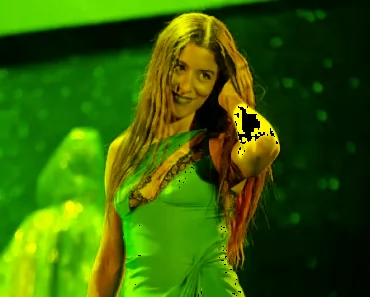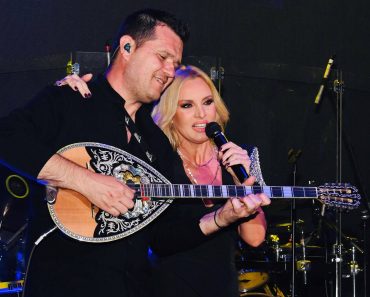
Theo Evan from Cyprus performs the song “Shh” during the dress rehearsal for the first semi-final of the 69th Eurovision Song Contest, in Basel, Switzerland, Monday. [Martin Meissner/AP]
The Eurovision party is officially underway: a week of power pop, outrageous outfits – and, inevitably, protests – that culminates in the final of the 69th Eurovision Song Contest on Saturday night.
Competitors representing 37 countries are in the Swiss city of Basel for disco diplomacy and one of the world’s biggest spectacles. Organizers say last year’s final was watched by more than 160 million people – a guilty pleasure for some, an unabashed joy for others.
Where and when is Eurovision?
This year’s contest is in Switzerland because Swiss singer Nemo won the contest last year with the operatic anthem “The Code.” Basel, which borders Germany and France, was chosen as the host city.
Countries from across Europe – and a few beyond, like Israel and Australia – have sent an act to Eurovision. The performers will take the stage at St. Jakobshalle arena in semifinals on Tuesday and Thursday that will choose 20 acts to go through to the final.
The “Big Five” of France, Germany, Italy, Spain and the UK, along with host Switzerland, automatically qualify for the final.
How to watch Eurovision 2025
The competition will be aired by national broadcasters in participating nations, including ERT, where coverage commences with a preview at 9 p.m. and the first semifinal at 10 p.m. on Tuesday and Thursday.
How to vote on Eurovision
During and immediately after the semifinals and final, viewers in participating countries can vote by phone, text message or the Eurovision app – but not for their own country. Viewers in the US and other nonparticipating countries can vote online at www.esc.vote or with the app. The combined “rest of the world” vote is given the weight of one individual country.
The semifinals are decided by public vote, and viewers can only vote in the semifinal their country is participating in.
For the final, the winner is decided by a complex mix of public voting and points from juries of music industry professionals in all the participating countries. The juries allocate between one and 12 points to their favorite songs, with an announcer from each country popping up to declare which has been granted the coveted “douze points” (12 points).
Public and jury votes are combined to give each country a single score. Ending up with “nul points” (zero points) is considered a national embarrassment.
Who to watch for
Betting odds make Sweden the strong favorite with “Bara Bada Bastu,” an upbeat ode to sauna culture performed by the trio KAJ.
Favorites have tended to win in recent years, but that isn’t always the case.
Other strong contenders, according to bookmakers, include classically trained Austrian singer JJ’s “popera” song “Wasted Love,” French singer Louane’s ballad “maman,” Dutch entry Claude’s “C’est La Vie” and Israeli singer Yuval Raphael, a survivor of Hamas’ October 7, 2023 attack, with “New Day Will Rise.”
When is Greece performing?
Greece’s Klavdia will perform her “Asteromata” (Starry Eyes) in 8th place in the second semifinal on Thursday.
Cyprus’ Theo Evan, with “Shh,” will be the penultimate act at the first semifinal on Tuesday.
Why are protests likely during Eurovision?
Israel has competed in Eurovision for more than 50 years, and won four times. But last year’s event in the Swedish city of Malmo drew large demonstrations calling for Israel to be kicked out of the contest over its conduct of its war against Hamas in Gaza.
More than 70 former participants, including 2017 winner Salvador Sobral from Portugal, 2023 UK entry Mae Muller and La Zarra, who competed for France in 2023, signed a letter calling for Israel to be excluded. They noted that Russia has been banned since its 2022 invasion of Ukraine.
The European Broadcasting Union, which runs Eurovision, pointed out that Israel is represented by its public broadcaster, KAN, not the government.
Several of the national broadcasters that fund Eurovision, including those of Spain, Ireland and Iceland, have called for a discussion about Israel’s participation.
After tensions ran high last year, with the expulsion of the Dutch contestant over a backstage altercation, the EBU tightened the contest’s code of conduct, calling on participants to respect Eurovision’s values of “universality, diversity, equality and inclusivity” and its political neutrality.
It has barred performers from waving flags, other than national ones, onstage or in other on-camera areas. But some delegations have protested that effectively bans LGBTQ+ pride flags from an event with a huge gay following.
Audience members will be allowed more leeway, however, after controversy last year after a ban on Palestinian flags. [AP, Kathimerini]







